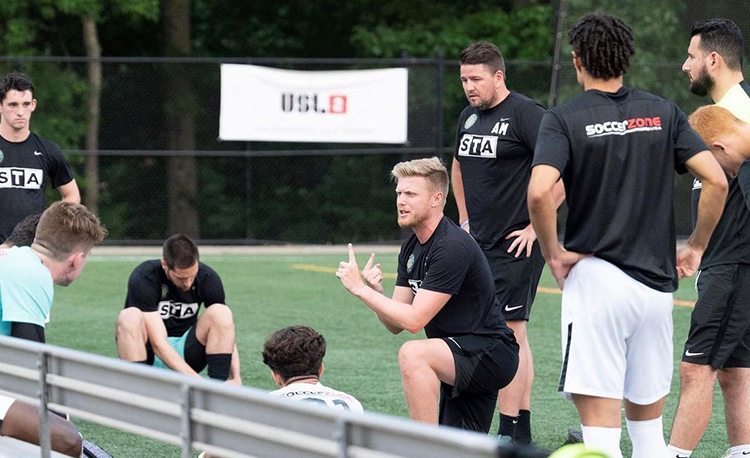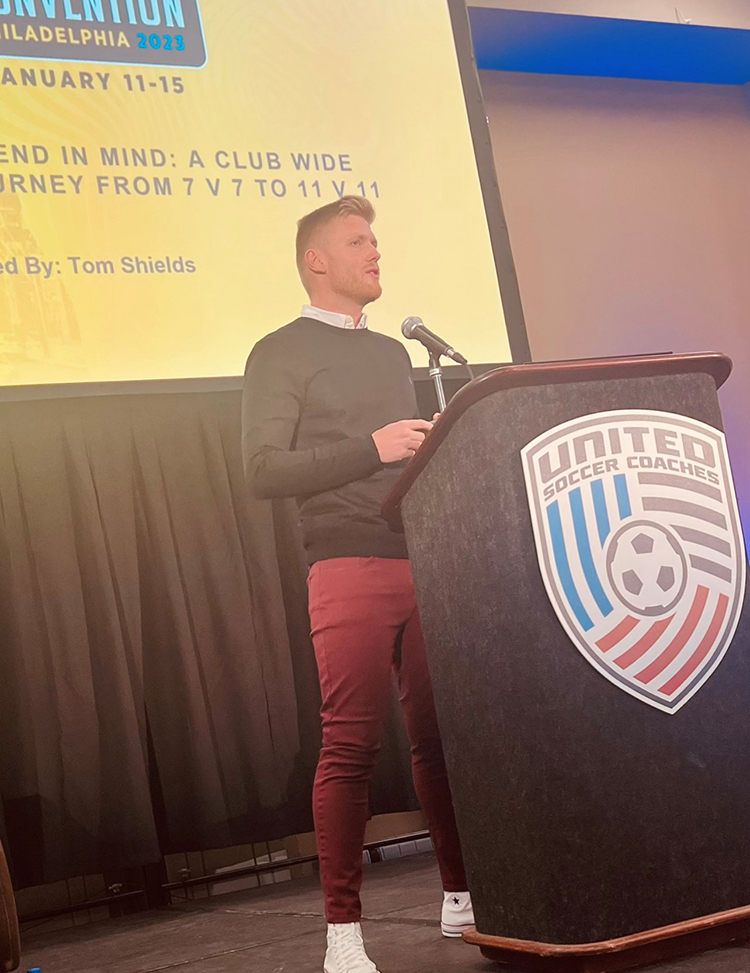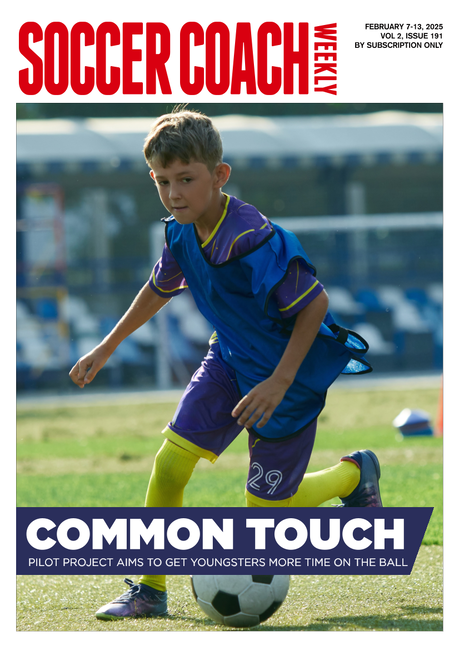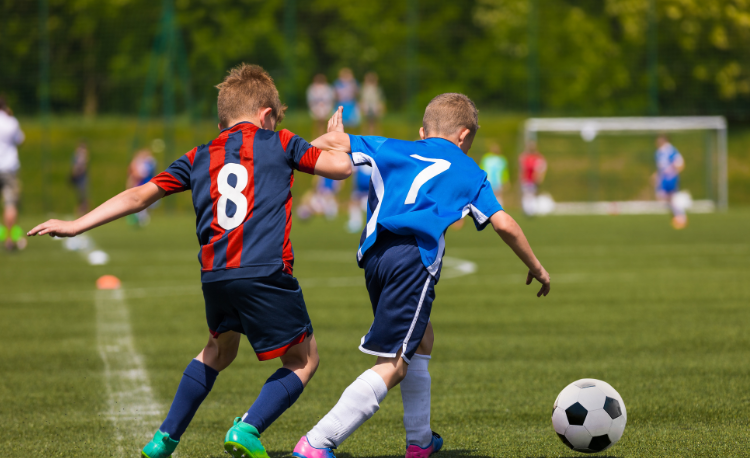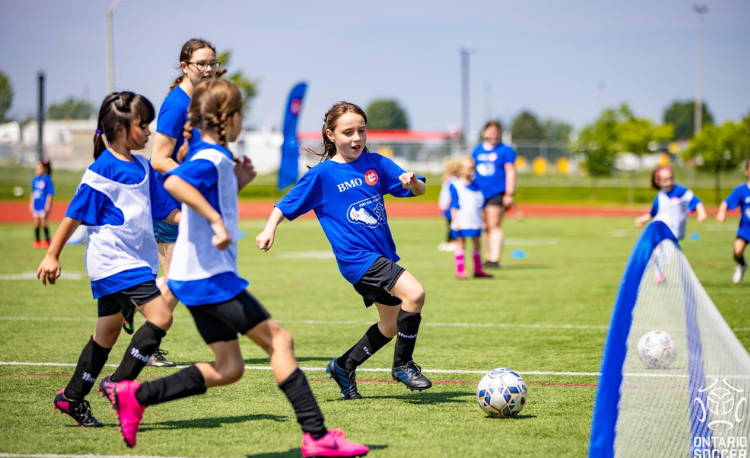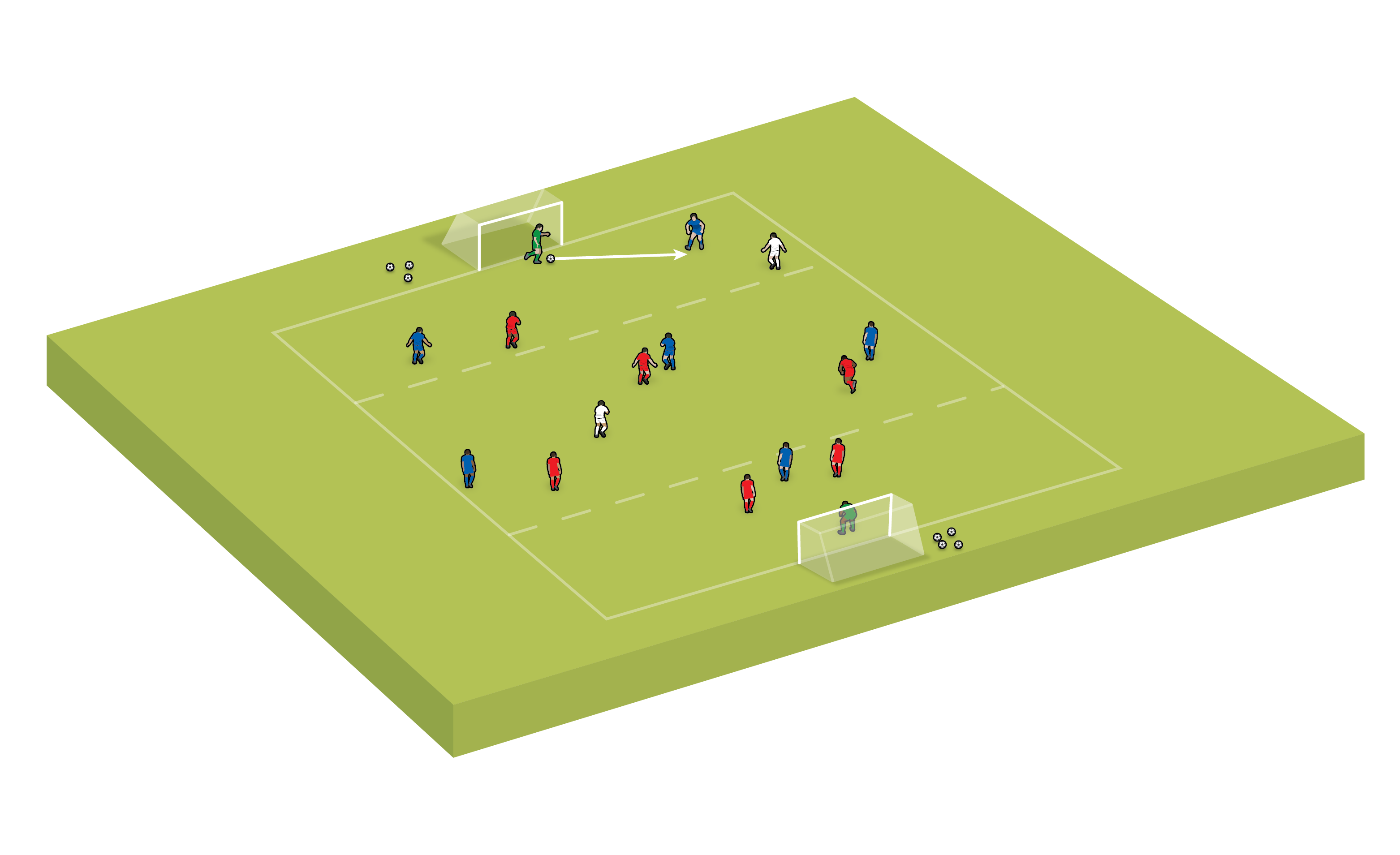Tom Shields: Progressive, holistic and player-centred
A coach with a masters degree in sports psychology, Tom Shields tells Steph Fairbairn about his passion for a ’modern’ and ’innovative’ style of coaching
Tom Shields is the technical director, boys’ ECNL director and USL2 head coach at STA Soccer in Randolph, New Jersey.
Tom was formerly coach of Hull City Ladies and the University of Hull, in his native England. He was also an assistant and NCAA Division I title-winning coach at Central Connecticut State University, and director of player performance and pedagogy at Rutgers University. He also holds a masters degree in sports psychology.
SCW caught up with Tom at the United Soccer Coaches Convention, where he spoke about his progressive, holistic, player-centred coaching approach…
SCW: Tell us what progressive, holistic and player-centred coaching means...
TS: "It is modern, proactive, new and innovative approaches, blending into holistic, considering the whole person.
"I think it’s a move towards understanding the complexities of our profession, professionalizing our profession and increasing the level of education and experience our youth players are exposed to.
"It’s not saying that 20 or 50 years ago people were doing things badly. But I do think it’s now at a place where the depth and detail people go into means it’s maybe more complex, thoughtful and considerate than it was.
“I think the types of conversations you can have with people around the more modern approaches are in a different place to what existed when I first started on my journey.
“So I think that consideration, especially now, of the complexities our young people are experiencing - post- pandemic, with the world of social media - we’d be naive to not consider the lives they lead being very different to the ones you and I grew up with, even a generation ago.
“So we’ve tried to adopt much more games-based and player-centred coaching, that’s appreciating the impact your behaviors can have on the personal development of players, how training activities connect to the game we want to play and how your coaching has to connect to the types of players and people you want to develop.
“So the progressive piece for me just dives deeper into the job we do, the work we perform and, ultimately, the education we want to provide to the players."
"I like to dive deeper into how people learn and acquire skills through games..."
SCW: Building all of that in, how do you do that in practice? What would an ideal STA session look like?
TS: "Our training approach is underpinned by ecological dynamics. We’re very much in the games-based and constraints-led approach to coaching and practice design.
“I like to integrate ideas and find things that work for us, fundamentally that are underpinned by rational theory, and dive deeper into how people learn and acquire skills through games.
“We have a four-stage approach. We have an activation phase that considers the age of the players’ physical development - things to really initiate engagement.
“We then move into a modified play stage. Everything there is within a rondo, a small-sided game or an activity that’s inclusive of decision-making, opposition pressure, direction, goals and a scoring system.
“We coach a lot through principles and counter principles. So even if it’s a rondo and the attacking team have a target, equally the defending team have a target.
"There might be a target to pass through or a side to dribble out of, but we’re trying to keep accountability of all individuals’ responsibilities in each moment of the game connected to our game model.
“We then move into a gameplay phase where the numbers will increase and it looks as close to the real game as possible, while having constraints sprinkled in.
"Whatever topic is being delivered needs to be central to the rules in the session or the challenges asked of the players. Again, with principles and counter-principles, we don’t want to only work on one side of the ball.
“Then we move into true gameplay, where the coaching is reduced, the constraints are lifted and the players are challenged to apply whatever content and information they’ve received in the earlier parts of the session.
“What else do I want to see? Competition, collaboration, intensity, intelligence, fun.
"Fun isn’t jumping around, playing goofy. Fun in the talent development pathway is learning, feeling like I’ve got better today, like I’ve been pushed, and, ultimately the time I’m investing in being here has been worth it.
"Collaboration links to self-determination theory and intrinsic motivation of players. So while we’re playing games, I want our staff to give our players the opportunity to work together and problem solve together.
"If we want innovative, independent critical thinkers and problem solvers, we have to expose them to opportunities to do that in training. However they choose to do it is on them, but I want to see groups of people working together and intentionally doing so.
“Competition is inherent in everything. Otherwise, what are we training for? Actions and consequences matter. So, keeping score can drive challenge and intensity levels.
"The intelligence piece means we’re exposing them to environments where they are asked to think and make decisions.
“Our job is to prepare them, as efficiently and as effectively as possible, for the challenges they face and to do so within the style we hope they can play the game with.
"For me, every practice has to be a demonstration of that."
SCW: With all the resources around these days, you can go into decision paralysis when planning sometimes. Is it important we give new coaches some guidance on what might be useful?
TS: "100%. I believe planning is one of the most critical components of effective coaching, and would advocate for everybody to be very intentional and deliberate with it, but not to a point of paralysis by analysis.
“With the greatest of respect to less experienced coaches, I think a lot of what they are trying to do in practice sessions is demonstrate how much they know, when in fact their quality and credibility could be demonstrated by how well the topic comes out and how much opportunity the players have to demonstrate the area of the game they are working on.
"Competition is inherent in everything. Otherwise, what are we training for...?"
“I talk about anticipating errors a lot. I should know how the constraints, challenges, or design structure of a practice is going to likely lead to players having struggles they have to overcome.
"Therefore, if I scaffold my coaching points, they should connect with what that anticipated struggle looks like.
“It doesn’t have to be that I solve every problem in one go, but I know that if playing forward is one of the primary objectives and we’re in a game situation, it might be that the first coaching point after a couple of minutes is simply to get the players scanning.
"Scanning is not just looking around. What are you looking for? Opponent, teammate, ball, space. Okay, think about that, off we go again.
"Then it’s about the direction of the first touch to prepare you to play the next pass. Then it’s about the type of pass that you’re playing and the ability to break lines. Then it’s about support ahead of the ball from teammates.
"I scaffold in little layers - it’s not four things in one go, and off you go, it’s ’we’ve got a period of time that’s allocated, here’s the objective, and here’s how we’re going to simply work towards it’. Then it’s about holding onto that information and building on it.
"I would challenge everybody to be thinking about how representative the practice that I’ve designed is, relative to the challenge that the players face in a game."
Related Files
Newsletter Sign Up
Coaches Testimonials

Gerald Kearney, Downtown Las Vegas Soccer Club

Paul Butler, Florida, USA

Rick Shields, Springboro, USA

Tony Green, Pierrefonds Titans, Quebec, Canada
Subscribe Today
Discover the simple way to become a more effective, more successful soccer coach
In a recent survey 89% of subscribers said Soccer Coach Weekly makes them more confident, 91% said Soccer Coach Weekly makes them a more effective coach and 93% said Soccer Coach Weekly makes them more inspired.
*includes 3 coaching manuals
Get Weekly Inspiration
All the latest techniques and approaches
Soccer Coach Weekly offers proven and easy to use soccer drills, coaching sessions, practice plans, small-sided games, warm-ups, training tips and advice.
We've been at the cutting edge of soccer coaching since we launched in 2007, creating resources for the grassroots youth coach, following best practice from around the world and insights from the professional game.

